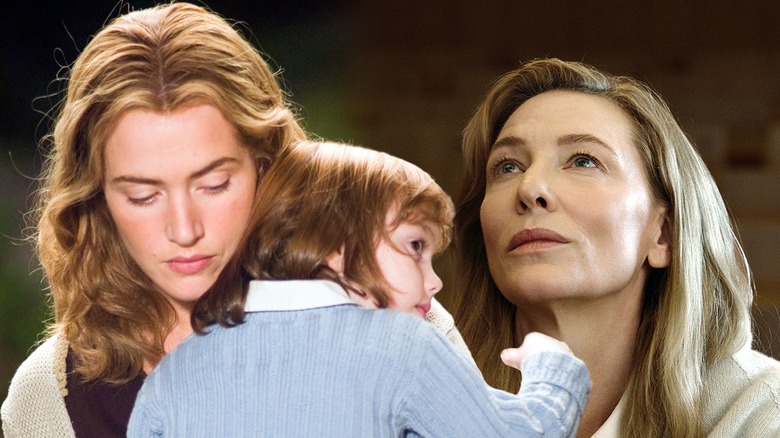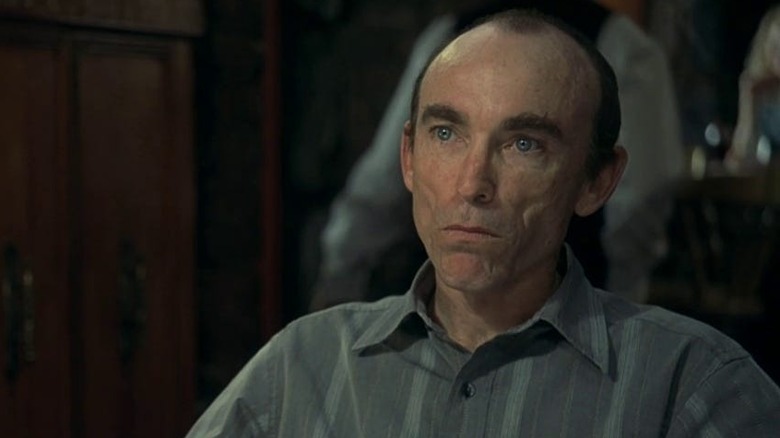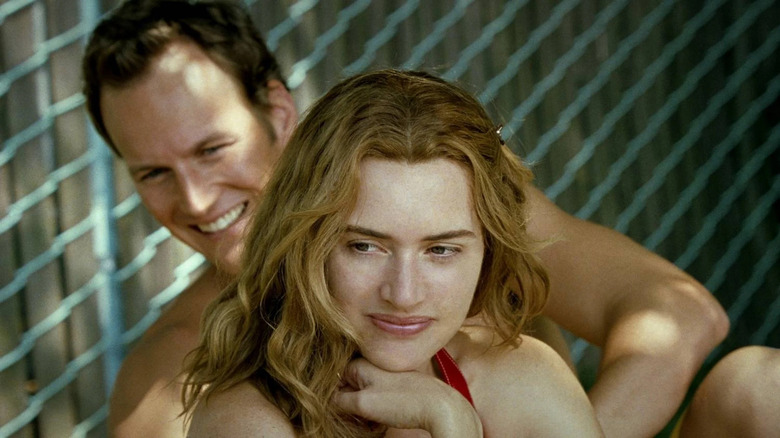If You Liked Tar, Watch Todd Field's Little Children
Todd Field has only made three feature films, but all of them have been critically acclaimed and nominated for Academy Awards. His latest film "TÁR" is a sleek, calculated portrayal of a trailblazing German Orchestra conductor who will be performing Mahler's Fifth Symphony. Her esteemed career implodes after she is accused of manipulating her impressionable young students and sabotaging their careers, even causing one to take her own life. She also has a heated dispute with a BIPOC pangender Juilliard student about Bach's misogyny blasted on social media.
Todd Field's work has been described as "Kubrickian," which makes sense considering he played the pianist in "Eyes Wide Shut" and learned a lot about the directorial process while working with the celebrated auteur. We can see a lot of Kubrick's influence in both "TÁR" and Field's previous film, "Little Children." Similarly, Field has a crisp visual style that supports richly detailed characters. His methodical images hold deep layers of psychological meaning.
Released 16 years before "TÁR," Field's second film "Little Children" foreshadows the hard-edged, chilly atmosphere that Field would later perfect in "TÁR." Although it is about an entirely different world — the unglamorous frustrations of parenting toddlers and sexual repression in suburbia — "Little Children" also focuses on complex and morally ambiguous protagonists through an austere lens.
Morally ambiguous characters
Even when Todd Field's characters have insidious qualities, he refrains from judging them. Even at their worst, his characters are not simply black and white: they exist firmly in the gray. Their actions always come from a complex place. For her role in "TÁR," Cate Blanchett tells The Guardian, "It's very easy to say she is monstrous, but the film is much more ambiguous than that." Although her character abuses her power in many ways, she is the product of a toxic system that allows her to do so.
The characters in "Little Children" are incredibly immature and self-absorbed adults, such as a husband addicted to pornography and a mother who disdains her young daughter. One of the more complicated characters is Ronnie, a registered sex offender who was in jail for indecent exposure to a minor. Field purposefully conceals the truth about Ronnie's past, and Jackie Earle Haley's vulnerable performance deepens this ambiguity.
Ronnie is very unwell, even masturbating next to his date while looking at a children's playground. At the same time, he understands he has problems and wants to be a good son for his elderly mother. Field comments in Filmmaker Magazine on how he offers no simplistic answers for this aberrant character:
"Yeah, he has some issues. But even in that scene, we don't really know what those issues are, and that was very important. It was an important thing that we never know for sure what he has or hasn't done. The community makes up its mind ... people at dinner parties use him as a conversation topic ... and the audience can make up their own minds too.
None of this excuses Ronnie's actions, but we see him as more than someone who committed a crime.
A voyeuristic visual style
In his "TÁR" review for /Film, Marshall Shaffer writes that "Field channels a Kubrickian sense of unease as he charts the existential unmaking of Tár as her ambition runs astray. ... Field builds sparsely and methodically toward the character's cataclysmic crescendo." The filmmaker does this through various sequences that silently observe moments in her life as they unfold in real-time, making the finished film longer than the actual "TÁR" screenplay.
"Little Children" is also a patient film, using dreamy slow motion to examine the monotonous routines of bored housewives at the playground as they rigidly prepare for snack time, or Brad's jealousy of the carefree kids skateboarding. Adding to the film's voyeuristic and calculated qualities is the use of third-person narration throughout the film, similar to Stanley Kubrick's "Barry Lyndon."
The voice-over sounds like book passages come to life, offering a wickedly comic perspective on the gulf between the characters' internal lives and their suburban expectations. In one scene, the narrator comments, "Smiling politely to mask a familiar feeling of desperation, Sarah reminded herself to think like an anthropologist. She was a researcher studying the behavior of typical suburban women. She was not a typical suburban woman herself."
The only character that does not receive this type of narration is Ronnie. Instead, the audience views him through the judgemental eyes of others. The narration device is a unique way for a film to comment on the action and scrutinize the characters from a distance, in the same vein as "TÁR" and the use of social media.


